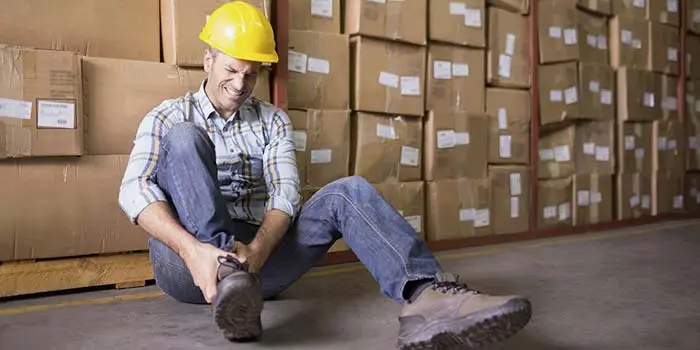Workplace Safety: What Business Owners Need to Know


According to the Occupational Safety and Health Administration (OSHA), 25% of employer insurance claims each year are due to slips, trips and falls. For business owners, these accidents cause a loss in productivity and can create unexpected expenses. While most slips and trips in the workplace can be prevented, you need to be prepared when accidents inevitably happen. Find out what you should know about safety in the workplace.
There are many areas in a workplace that could cause slips. Highly polished floors, smooth floors with dust or other particles, or freshly waxed surfaces can all be dangerous to employees. The weather can also be a factor, creating puddles of rainwater or melted snow in entryways causing wet shoes to slip without notice. Sloped surfaces, shifting tiles or floorboards, poorly cared for rugs and mats, and the simple act of personnel moving from one type of surface to another are also common causes of slips.
Several workplace items can cause major trip-ups to personnel. Unattended cords, hoses, cables, wires, debris, clutter or obstacles in walkways can easily cause a trip-and-fall incident. Rugs and mats can cause trips as well as slips, especially if corners are broken or curled.
Inside buildings, open drawers or doors that protrude into walkways, changes in floor elevation, awkward thresholds, irregular steps and gaps in floors can all cause falls. On the outside, sidewalks, curb drops and speed bumps can cause tripping hazards for employees and customers.
There are several things that all business owners can do to prevent accidents on their property. Follow the guidelines below to make your office, factory, small business or store a safe work environment.
While it is a company’s responsibility to keep their workplace clean and free of slip and trip hazards, there are several safe work practices that employees and customers can do to keep themselves safe.
To protect your business, learn more about Farm Bureau workers’ compensation coverage.